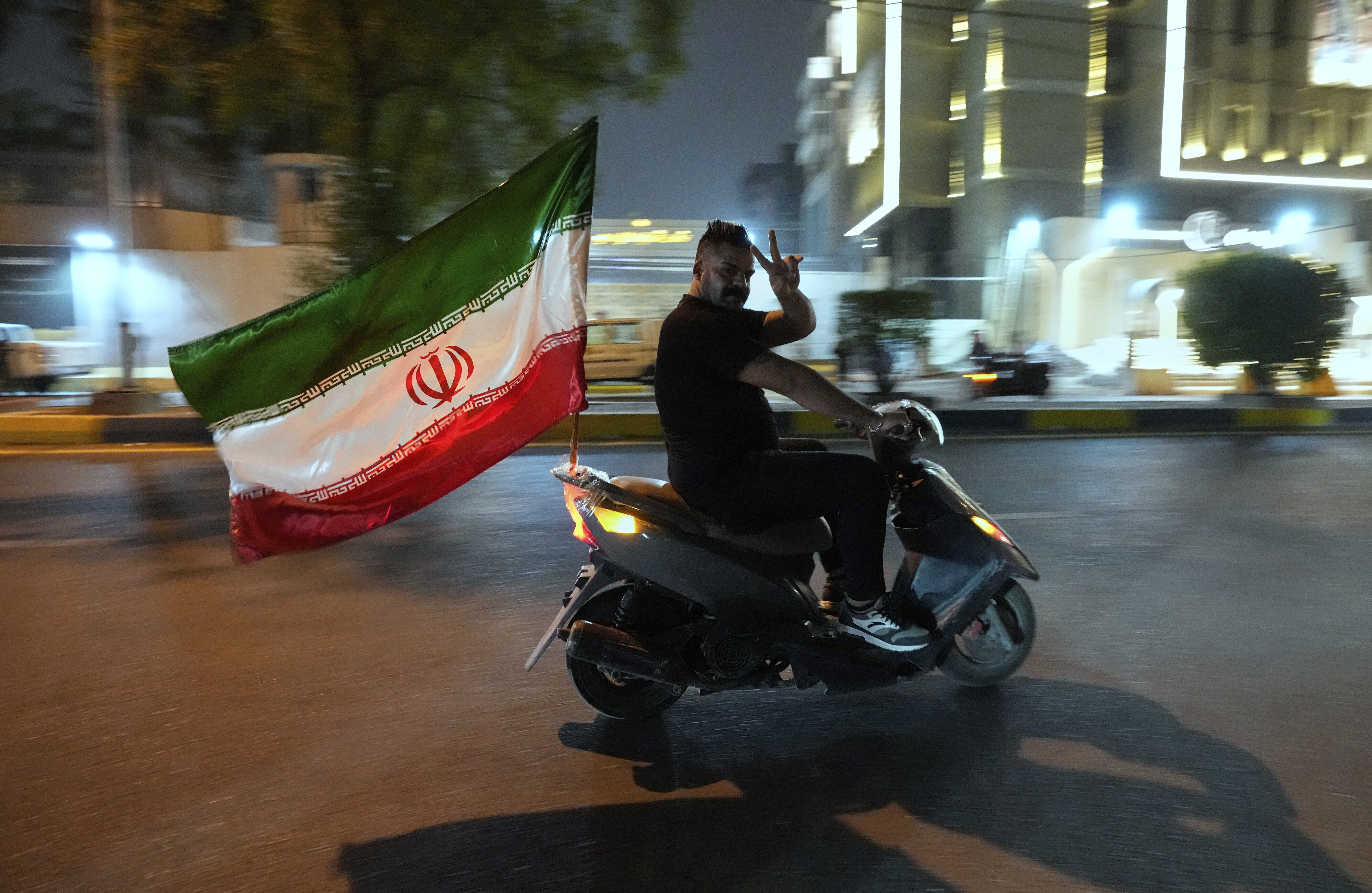Governments back fragile ceasefire as Qatar vows action over Iranian strike
Editor's note: As tensions flare and diplomacy teeters, this page examines the fragile Israel-Iran ceasefire and the high-stakes diplomacy surrounding it. We also turn inward to the United States, where President Donald Trump's military decision has exposed deep fractures within his own "MAGA" base.

Asia-Pacific and Middle Eastern countries have welcomed the reported cessation of attacks between Israel and Iran on Tuesday, while urging all parties to pursue dialogue as the path to resolving conflicts.
Saudi Arabia's Foreign Ministry praised on Tuesday the Israeli and Iranian willingness for a ceasefire — first announced by United States President Donald Trump — saying it "values the efforts exerted to de-escalate tensions" amid fears of a brewing regional escalation.
The ministry said it looks forward to all parties committing to de-escalation in the coming period and refrain from the use or threat of force, hoping that the agreement will contribute to restoring security and stability in the region and averting the dangers of continued escalation.
"The kingdom reaffirms its firm position in support of dialogue and diplomatic means as the preferred path to resolving regional disputes and conflicts, based on the principles of respecting state sovereignty and promoting security, stability and prosperity in the region and the world," the ministry said.
ALSO READ: Trump tells Israel not to drop more bombs on Iran
Australian Prime Minister Anthony Albanese welcomed Trump's announcement of the ceasefire, saying Canberra has consistently called for dialogue, diplomacy and de-escalation.
In addition, Japan welcomed the ceasefire with "strong hope "that it will be firmly implemented. Chief Cabinet Secretary Yoshimasa Hayashi said Tokyo would continue to monitor how the situation unfolds in the Middle East "with high interest".
The crude oil and stock markets saw better performances following the truce announcement, with oil rates down and stock indices up in many countries.
However, Trump told reporters at the White House on Tuesday that he was unhappy with both sides for violating the ceasefire, but particularly unhappy with Israel, which he said had "unloaded "shortly after agreeing the deal.
'Unacceptable' violation
In another development, Qatar's Prime Minister and Foreign Minister Sheikh Mohammed bin Abdulrahman bin Jassim Al-Thani said on Tuesday that Doha will pursue "diplomatic and legal measures "against Teheran following an Iranian attack on a US military base hosted in the Gulf state.
"The violation of Qatar's sovereignty is unacceptable, and all diplomatic and legal measures will be taken," he said.
On Monday evening, Qatar was subjected to an Iranian missile attack targeting the Al-Udeid Air Base of the US military, which was intercepted by Qatari air defenses, said Sheikha Alya Ahmed bin Saif Al-Thani, Qatar's permanent representative to the United Nations.
In a letter addressed to the UN Security Council, she called it a flagrant violation of sovereignty and territorial integrity.
Iranian Foreign Minister Abbas Araghchi said the missile launch was not against its Gulf neighbor but an act of "self-defense" after US strikes on nuclear sites.
"The missile operation by the Iranian Armed Forces targeting Al-Udeid base was carried out within the framework of Iran's legitimate right to self-defense," Araghchi said in a phone call with his Qatari counterpart.
The Iranian attack "should in no way be interpreted as an action against the friendly and brotherly government of Qatar", he was quoted as saying in a statement from his ministry.
The Qatari prime minister later said at a news conference in Doha, "What happened will definitely have its scar on the relationship (with Iran), but I hope by the time everyone learns the lesson that this kind of neighborhood relationship should not be violated and should not be undermined."
'Unlawful' attack
The Foreign Ministry of Oman condemned the continuing regional escalation, which was triggered by "Israel's unlawful attack" on Iran on June 13, and with the continued exchange of attacks since then, including Iran's missile strike on the US base in Qatar.
UN Secretary-General Antonio Guterres said he was "deeply alarmed by the further escalation of the conflict in the Middle East".
"I strongly condemn today's attack by Iran on Qatar, a country that has been active for peace in the region and further afield," he said.
Jasem Mohamed Albudaiwi, secretary-general of the Gulf Cooperation Council, condemned Iran's missile attack on Qatar and said GCC countries also strongly condemned Israeli attacks on Iranian territory and were making every effort to achieve a ceasefire and mediation.
Gokhan Ereli, Gulf studies coordinator at the Center for Middle Eastern Studies in Turkiye, told China Daily that Iran's targeting of the US base in Qatar as a retaliatory measure against US attacks risks triggering a severe crisis of confidence.
Despite reports that the US base had been evacuated and that advance notice was given to both the US and Qatar, "Qatar's assertion of its right to respond to the attacks stands as one of the clearest indicators of how relations between Iran and the GCC might evolve going forward", he added.
Agencies contributed to this story.


